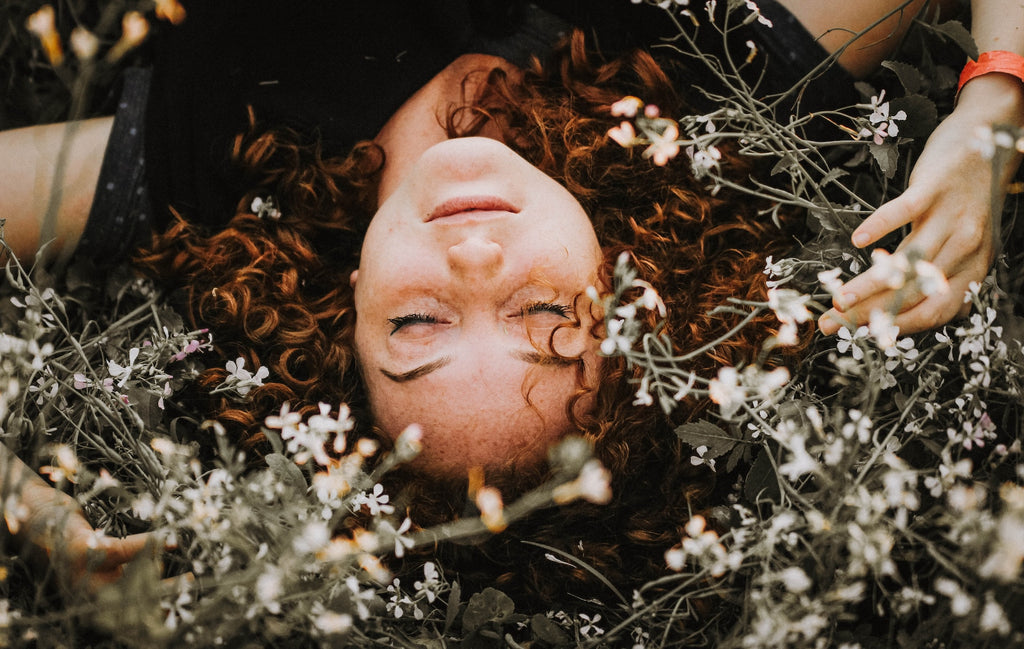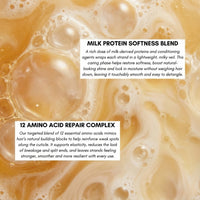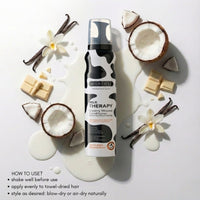Tips for Shiny, Healthy Hair: How to Keep Your Locks Looking Their Best
Posted by MORFOSE COSMETICS

Tips for Shiny, Healthy Hair: How to Keep Your Locks Looking Their Best
If you're looking for shiny, healthy hair, there are a few basics you need to understand. Hair health is rooted in science, and understanding your hair type is key. Once you've got that down, proper washing techniques, deep conditioning, heat protection, and good nutrition will help keep your locks looking their best. Here are our top tips for shiny, healthy hair.
Understanding the Basics of Hair Care
Before we dive into our tips, let's go over some important basics of hair care. Each hair strand is made up of three layers: the cuticle, cortex, and medulla. The cuticle is the outermost layer and protects the inner layers. The cortex contains the pigment that gives hair its color and provides strength and elasticity. The medulla is the innermost layer and is only present in thick hairs.
The Science Behind Hair Health
Hair health is determined by the health of the hair follicle, which is anchored in the skin of the scalp. Each hair follicle is surrounded by blood vessels and tiny muscles, which provide it with oxygen and nutrients. The hair shaft is produced by the follicle and is pushed out of the skin as it grows. Once it's out of the skin, it's no longer alive, and that's why hair care products can't actually repair damage.
However, there are ways to improve the health of your hair follicles. One important factor is nutrition. Eating a balanced diet with plenty of vitamins and minerals can help support healthy hair growth. Another factor is reducing stress, as high levels of stress can lead to hair loss. Additionally, avoiding harsh chemicals and heat styling tools can help prevent damage to the hair shaft and cuticle.
Identifying Your Hair Type
Understanding your hair type is crucial for choosing the right products and treatments. Hair types are generally divided into straight, wavy, curly, and kinky. Hair texture is determined by the shape of the hair follicle and the amount of curl in the hair strand. The thickness of each individual strand also affects hair type, as thinner strands are more prone to damage.
It's important to note that hair type can change over time due to factors such as hormonal changes and aging. For example, someone with naturally straight hair may find that their hair becomes more wavy as they get older.
To determine your hair type, you can do a simple test. Wash your hair and let it air dry without using any products. Then, observe the shape of your hair strands. If they are straight and don't have any curl, you have straight hair. If they have a slight wave or curl, you have wavy hair. If they have a definite curl or spiral shape, you have curly hair. And if they have a tight, coiled shape, you have kinky hair.
Once you know your hair type, you can choose products and treatments that are specifically formulated for your hair's needs. For example, someone with curly hair may benefit from using a leave-in conditioner to help define their curls, while someone with straight hair may want to use a volumizing spray to add body.
Proper Washing Techniques for Shiny Hair
Washing your hair regularly is important for keeping it clean and healthy. The right washing technique can help maintain your hair's shine and reduce damage. Here are some tips:
Choosing the Right Shampoo and Conditioner
Choosing the right shampoo and conditioner is key to maintaining hair health. Look for products that are specifically designed for your hair type, and avoid sulfates, which can strip hair of its natural oils.
When selecting a shampoo, it is important to consider your hair type. If you have fine hair, a volumizing shampoo can help add body and texture. If you have curly hair, a moisturizing shampoo can help define your curls and reduce frizz. If you have color-treated hair, a color-safe shampoo can help preserve your hair color and prevent fading.
Conditioner is also important for maintaining healthy hair. It helps to detangle hair, reduce frizz, and add moisture. If you have fine hair, use a lightweight conditioner that won't weigh down your hair. If you have thick or curly hair, use a heavier conditioner to help tame frizz and add moisture.
How Often Should You Wash Your Hair?
How often you should wash your hair depends on your hair type and lifestyle. If you have oily hair, you may need to wash it every day. If you have dry hair, you can probably get away with washing it every few days. If you work out regularly, you may need to wash your hair more often.
It is important to note that over-washing your hair can actually strip it of its natural oils, which can lead to dryness and damage. If you have color-treated hair, over-washing can also cause your hair color to fade more quickly.
When washing your hair, be sure to use lukewarm water. Hot water can strip your hair of its natural oils, while cold water may not effectively remove dirt and product buildup. Massage the shampoo into your scalp, and use your fingertips to gently scrub your scalp. Rinse thoroughly with water, and follow up with conditioner.
After washing your hair, gently pat it dry with a towel. Avoid rubbing your hair vigorously with a towel, as this can cause damage and breakage. If you need to use a hair dryer, use it on a low or medium setting, and hold it at least 6 inches away from your hair. Using a heat protectant spray can also help prevent damage from heat styling.
By following these proper washing techniques, you can help maintain your hair's shine and health.
The Importance of Deep Conditioning
Deep conditioning is a crucial step in maintaining shiny, healthy hair. It involves using a conditioner that penetrates the hair shaft and provides it with the necessary nutrients to keep it healthy and strong. Here's why:
Benefits of Hair Masks and Treatments
Deep conditioning treatments can help to nourish and moisturize your hair, improving its texture and shine. Hair masks, hot oil treatments, and protein treatments are all great options. Hair masks are especially effective in providing deep conditioning to your hair. They can be made with a variety of ingredients, including avocado, banana, honey, and coconut oil. These ingredients are rich in vitamins and minerals that are essential for healthy hair growth.
Hot oil treatments are another great way to deep condition your hair. They involve heating up a natural oil, such as olive oil or coconut oil, and applying it to your hair. The heat helps to open up the hair cuticle, allowing the oil to penetrate deep into the hair shaft. This helps to moisturize and nourish your hair from the inside out.
Protein treatments are also important for deep conditioning your hair. They help to strengthen your hair and prevent breakage. Protein treatments can be made with ingredients such as egg, yogurt, and mayonnaise. These ingredients are rich in protein, which is essential for healthy hair growth.
DIY Deep Conditioning Recipes
If you'd rather avoid commercial deep conditioning products, there are plenty of DIY options that can be made with ingredients you probably already have at home. Try mixing avocado, honey, and olive oil for a nourishing hair mask. Avocado is rich in vitamins A, D, and E, which help to nourish and moisturize your hair. Honey is a natural humectant, which means it helps to retain moisture in your hair. Olive oil is rich in antioxidants, which help to protect your hair from damage.
Another great DIY deep conditioning recipe is a banana and coconut oil hair mask. Bananas are rich in potassium, which helps to strengthen your hair and prevent breakage. Coconut oil is rich in fatty acids, which help to moisturize and nourish your hair. Simply mash up a ripe banana and mix it with a few tablespoons of coconut oil. Apply the mixture to your hair and let it sit for 30 minutes before rinsing it out with warm water.
In conclusion, deep conditioning is an essential part of any hair care routine. It helps to nourish and moisturize your hair, improving its texture and shine. Whether you choose to use commercial products or make your own DIY recipes, regular deep conditioning treatments will help to keep your hair healthy and strong.
Protecting Your Hair from Heat Damage
Heat damage is a major cause of hair breakage and dullness. It can leave your hair looking lifeless and frizzy. However, there are ways to protect your hair from the heat of styling tools. Here are some tips:
Using Heat Protectant Products
One of the best ways to protect your hair from heat damage is to use a heat protectant product. Heat protectant sprays or serums can provide a barrier between your hair and the heat of your styling tools. These products can also help to lock in moisture, which can prevent your hair from becoming dry and brittle. Look for products that contain ingredients like silicone, which can protect your hair from heat damage.
When using a heat protectant product, be sure to apply it to your hair before using any heat styling tools. This will help to ensure that your hair is protected from the heat.
Alternatives to Heat Styling
If you can't avoid heat styling, there are some things you can do to minimize the damage. One option is to use a lower heat setting on your styling tools. This can help to reduce the amount of heat that your hair is exposed to, which can help to prevent damage.
Another option is to use heatless styling methods like braiding or air-drying. Braiding your hair can create beautiful waves and curls without the need for heat. Air-drying your hair can also help to prevent damage, as it eliminates the need for heat styling tools altogether.
Finally, it's important to remember that healthy hair starts from within. Eating a balanced diet that is rich in vitamins and minerals can help to keep your hair healthy and strong. Additionally, drinking plenty of water can help to keep your hair hydrated, which can prevent damage.
By following these tips, you can help to protect your hair from heat damage and keep it looking healthy and beautiful.
The Role of Nutrition in Hair Health
Finally, good nutrition is key to maintaining healthy hair. Here's what you should be eating:
Essential Vitamins and Minerals for Strong Hair
Vitamins and minerals like biotin, iron, and vitamin D are essential for strong, healthy hair. Foods like eggs, spinach, and salmon are great sources of these nutrients.
Foods to Incorporate into Your Diet
Incorporate healthy fats, like those found in avocados and nuts, into your diet to keep your hair moisturized. Eating a variety of fruits and vegetables will also provide your hair with the vitamins and minerals it needs to thrive.
By following these tips, you'll be on your way to shiny, healthy hair in no time!
TAGS:



